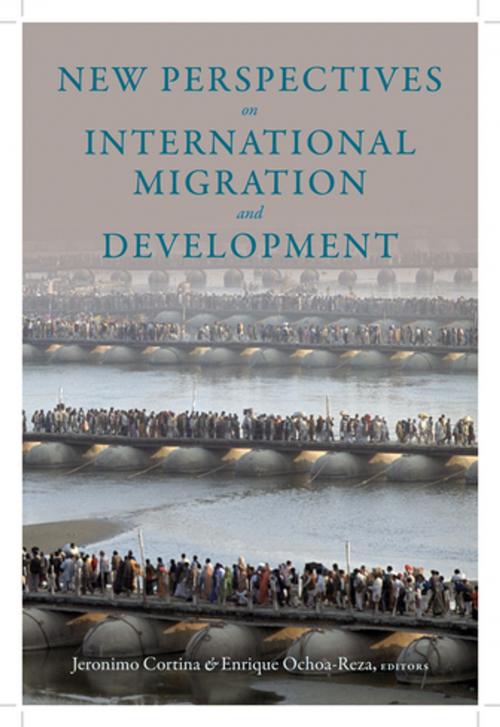New Perspectives on International Migration and Development
Business & Finance, Economics, Economic Development, Nonfiction, Social & Cultural Studies, Political Science, Politics, Economic Policy| Author: | ISBN: | 9780231527491 | |
| Publisher: | Columbia University Press | Publication: | July 16, 2013 |
| Imprint: | Columbia University Press | Language: | English |
| Author: | |
| ISBN: | 9780231527491 |
| Publisher: | Columbia University Press |
| Publication: | July 16, 2013 |
| Imprint: | Columbia University Press |
| Language: | English |
With contributions from leading scholars in international development, economics, political science, and sociology, this collection draws attention to migration's developmental impacts on sending and receiving societies. Through current case studies, contributors examine the interplay among migration, development, culture, family reunification, human rights, and government, all with the aim of advancing more effective solutions to international migration issues.
The volume's multidisciplinary perspective combines theoretical discussions with empirical applications, appealing to both academics and policymakers eager to maximize migration's developmental impacts. The collection begins with a discussion detailing when and why migration promotes growth and what kind of indicators beyond GDP should be considered. Challenging a number of misconceptions, such as the assumption that redressing poverty and alleviating underdevelopment in immigrant communities are solely economic pursuits, contributors acknowledge the inherent cultural dimension in the migration–development debate and define the contours of a research program that systematically and comparatively weighs the cultural dynamics of development and migration. They also emphasize the role of human rights in reinforcing positive developmental outcomes, how traditional social roles and its developmental impacts are reshaped by the international migration of women and children, and international migration's developmental impacts within specific geographic regions.
With contributions from leading scholars in international development, economics, political science, and sociology, this collection draws attention to migration's developmental impacts on sending and receiving societies. Through current case studies, contributors examine the interplay among migration, development, culture, family reunification, human rights, and government, all with the aim of advancing more effective solutions to international migration issues.
The volume's multidisciplinary perspective combines theoretical discussions with empirical applications, appealing to both academics and policymakers eager to maximize migration's developmental impacts. The collection begins with a discussion detailing when and why migration promotes growth and what kind of indicators beyond GDP should be considered. Challenging a number of misconceptions, such as the assumption that redressing poverty and alleviating underdevelopment in immigrant communities are solely economic pursuits, contributors acknowledge the inherent cultural dimension in the migration–development debate and define the contours of a research program that systematically and comparatively weighs the cultural dynamics of development and migration. They also emphasize the role of human rights in reinforcing positive developmental outcomes, how traditional social roles and its developmental impacts are reshaped by the international migration of women and children, and international migration's developmental impacts within specific geographic regions.















